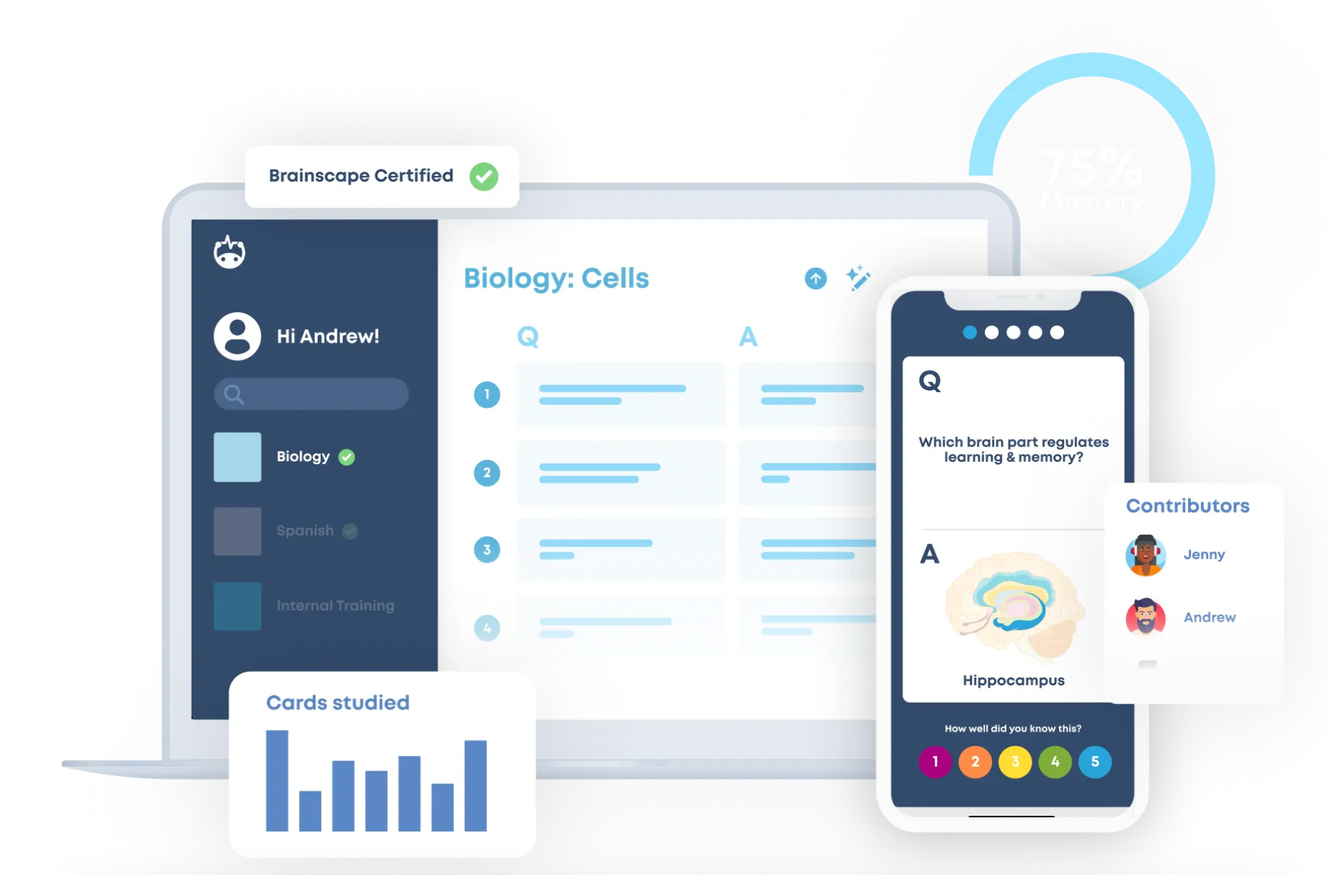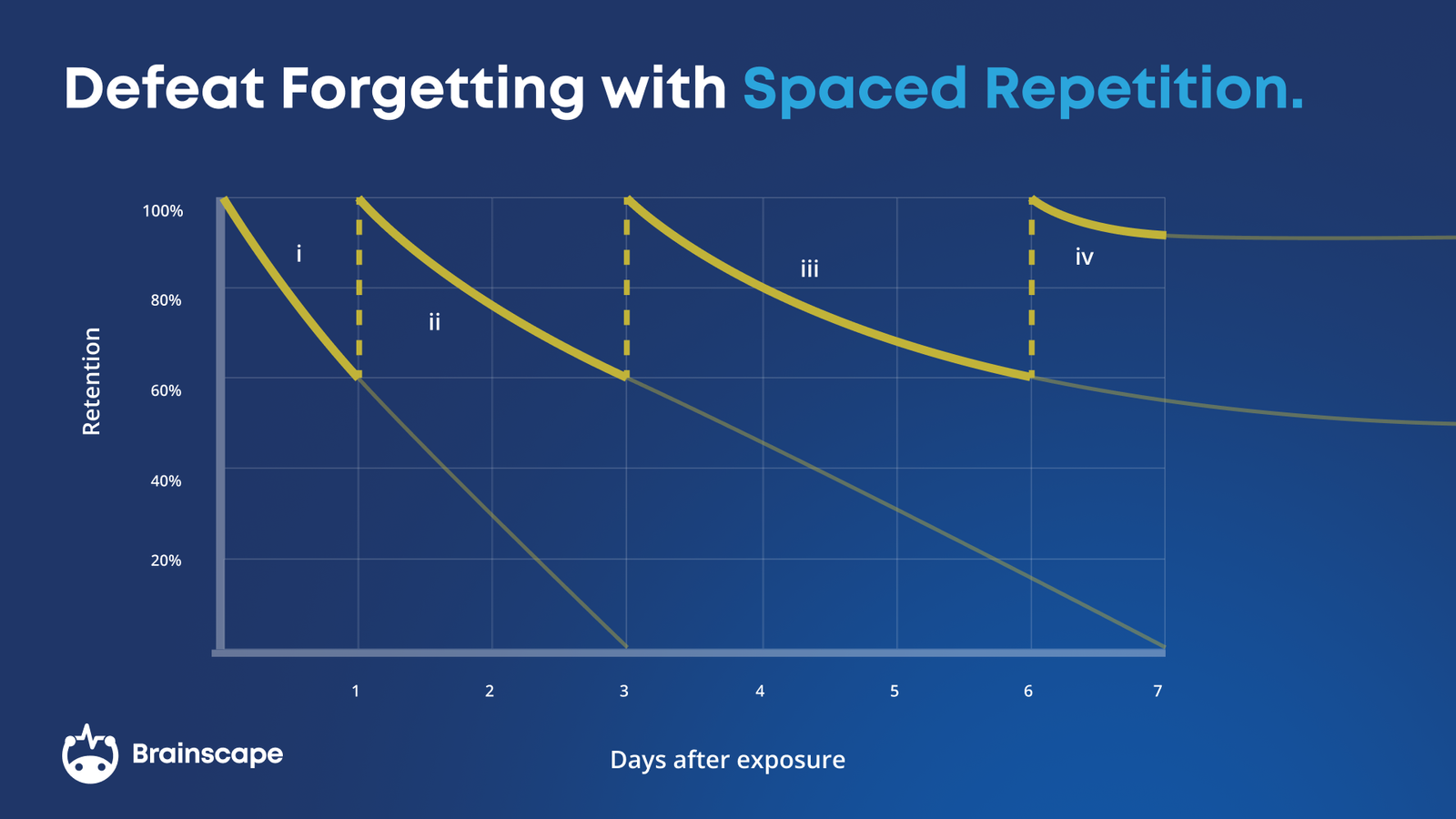Sweet baby carrots, is it that time of the year again? The Advanced Placement or AP exams are around the corner so you’ve come here to either have a pressing question answered or to learn how to study for your AP exams more efficiently (or both).
We get it. The AP exams are a big deal: this is your chance to get your tertiary education off to an excellent start, while also possibly saving a lot of time and money on college tuition if you score well.
That’s what we’re going to help you do with this AP study guide, so strap in; we’ve got the answers you’re looking for!
The Ultimate Study Weapon: Flashcards

Just a quick note about Brainscape: we’ve brought together some of the smartest people in AP to compile this study guide, as well as a comprehensive collection of AP subject flashcards.
These flashcards were painstakingly made and vetted by our team of AP subject educators to cover the top concepts in the official College Board test plan, as well as popular test prep providers like Barron's, Princeton Review, Khan Academy, Albert.io, Kaplan, Study.com, and others. (In other words, no matter which test prep resource you're using, we've got you covered!)
Our collection continues to grow but right now, within our Knowledge Genome, you’ll find certified flashcards for:
- AP Biology
- AP Chemistry
- AP European History
- AP French
- AP Government
- AP Physics
- AP Psychology
- AP Spanish
- AP US History
- AP World History
Plus, you’ll find many other users’ collections of flashcards for the other AP subjects ranked according to popularity.
Now, with that introduction out of the way, let’s begin by answering a few of your FAQs before sharing with you our best tips on how to study for AP exams.
FAQ About AP Exams
What are AP Exams?
Advanced Placement or AP examinations are offered in the United States once per year, typically in May, by the College Board. The exams themselves are the culmination of year-long courses, of which there are 38 offered globally, ranging from Art, Humanities, and Languages to Psychology, Physics, and Mathematics.
AP courses are essentially designed to prepare students for college-level work by offering a more accelerated approach to the traditional courses offered in high school. They can also count as college credits, provided students perform well in them, which can end up saving them time and money on college tuition.
In other words: there’s a lot at stake for you to score those 5’s!
How Long are AP Exams?
Most in-person AP exams are between 2 and 3 hours long. From May 2025, 16 AP exams will be fully digital. 12 AP exams will be hybrid, where your questions appear online but you write answers on paper.
Refer to the College Board website for up-to-date information on AP exam timing and structure.
How Do You Register for AP Exams?
- Ensure you’ve joined your class section online.
- Register—or confirm your existing registration—in My AP. This will let your coordinator know that you plan to take the exam, and they will order it for you. (If you don’t see the “register” button, it means you’ve been automatically registered.)
- Talk to your school AP coordinator about paying exam fees. They will collect fees directly from you. (You cannot pay through the College Board website.)
- Once you have selected to register, the date and time of your exam will appear in your course card in My AP. Your AP coordinator will let you know when and where to report for your exams.
When are the AP Exams in 2025?
AP exams generally take place every year during the first two weeks of May.
- The 2025 AP Exams will be administered from May 5 to 9 and May 12 to 16. See the complete 2025 AP exam schedule here.
- The 2026 AP Exams will be administered from May 4 to 8 and May 11 to 15.
Can You Retake AP Exams?
You can retake an AP exam but you’ll have to wait for the following year, when it’s administered again. If you do decide to retake, both scores will be reported on your record, unless you request that one be withheld or canceled.
Our 5 Best Tips on How to Study for AP Exams
Tip # 1: Create a Detailed Study Plan and Schedule
The AP exams cover a lot of material and since many students take on multiple AP subjects at once, you’ll need to have a clear plan of action to get everything done in the months or weeks ahead of your test dates.
We recommend that you first draw up a detailed study plan that breaks down each AP subject into daily or weekly study goals. (You can use Brainscape's free, downloadable study planner templates here.)
Keep each goal achievable but with each day covering enough new material so that you arrive for your exams fully prepared, without having to cram.
Tip # 2: Use Flashcards to Memorize Content Efficiently
Flashcards are proven to be the most efficient way to remember a lot of content. They also make mountains of work feel a whole lot more approachable, so downloading a flashcard app like Brainscape gives you a super convenient way to study for your AP exams really efficiently, wherever you go, and in any spare snatches of time you might have.
You can easily make your own flashcards (which, in itself, helps you process and remember information) or you can dive into Brainscape’s expert-curated AP collections, which have already broken down the most recent AP curriculum into flashcards for you, saving you a TON of time!
What sets Brainscape apart from other study apps is that it applies the potent learning power of spaced repetition. With every flashcard, you’ll be asked to self-assess how well you know the answer. (This self-reflection—called metacognition—is another cognitive trick for remembering information quicker.)
Then, you rate on a scale of 1 to 5 how well you knew that concept, with 1 being “not at all” and 5 being “entirely confident”. Our sophisticated spaced repetition algorithm will then determine the perfect interval at which to show you that card again. In this way, Brainscape drills you on your weaknesses until they become strengths, while saving you time reviewing the concepts you’re already confident in.
So, if you want to study for the AP exams more efficiently, get Brainscape’s AP subject flashcards in your corner!
Tip # 3: Frequently Review What You Covered Before

Many students make the mistake of studying in a linear fashion: from the beginning of their subject to the end without ever looking back to review what they covered before. Unfortunately, the brain doesn’t retain information it doesn’t use frequently and so by the time these students arrive for their exams, they’ve forgotten a lot of what they studied at the beginning of their prep.
To avoid this, it’s crucial that you schedule a bit of time every day to review what you learned the days before. For example, let’s say you cover “Chapter 1” on day 1 of your prep. If you review that content on day 2, day 4, day 7, day 14, and day 21, by the time you sit for your exam, you’ll be completely fluent in chapter 1’s content.
This is a completely arbitrary spread of revision dates but the point is that you frequently review the content at first. Later, you review it after longer and longer intervals so that you refresh your memory at just the right cadence. Brainscape automates this revision timeline so all you have to do is hit the “study” button. After a few rounds of flashcards, you'll be completely caught up on what you studied previously!
Tip # 4: Study a Little Bit Every Day, Rather Than Cramming
It is far better to study for 30 minutes a day than it is to pull an all-nighter before an exam. Sure, it’s been done before, but a sleep-deprived brain is like a sieve for information. You just aren’t going to retain the knowledge you need to do well.
So, several weeks out from your exams—maybe even months if you’ve signed up for several AP subjects—make that detailed study plan and dedicate a little time every day to working towards the ultimate goal of acing your AP exams.
For advice on how to build those strong daily study habits, check out the linked guide or watch this video on our YouTube channel:
Tip # 5: If You’re Getting Bored, Mix Things Up
Spreading your studies out over a longer period should help prevent extreme study burnout but, still, there are those days when you just can’t handle the thought of another textbook page. When the boredom hits, shake things up by using a different study technique, media, or even environment:
- Instead of making study notes, draw up a concept map to illustrate how various important facts are linked;
- Practice questions or solving problems (if relevant to your AP subject);
- Use Brainscape’s flashcards to (1) review older content and (2) break new ground;
- Study somewhere different, like a coffee shop or library;
- Use the Feynman Technique to reinforce what you’ve learned (see tip # 6); and
- Create a study group to hold yourself and others accountable (see tip # 7).
Remember, the key here is to really engage with what you’re learning so if the textbook is beginning to bore you (as it most certainly will after the third straight hour of reading) it’s time to switch over to more engaging methods, like flashcards, concept maps, question practice, social studying, or even teaching, etc. In other words: methods that compel you to use what you’ve learned.
Also, make sure you’re taking decent study breaks. If you feel burned out, it could be because you’re hammering the books too hard, without taking any breaks for processing and rejuvenation.
A Final Word on Studying for the AP Exams
Whew—you made it to the end! (Gold star for stamina.) We’ve just walked you through everything you need to study for your AP exams like a total legend, from making a killer study schedule to reviewing smarter with Brainscape’s spaced repetition flashcards. Whether you’re taking one exam or seven, the keys to success are planning ahead, reviewing often, and staying consistent. (Oh, and getting some sleep. Seriously. Put the energy drinks down.)
Remember: you don’t have to do this the hard way. Brainscape’s certified AP flashcards—created by actual AP educators—are literally designed to save your brain from content overload and help you retain the most important concepts faster and more efficiently. So download the app, fire up your decks, and start chipping away. Bit by bit. Day by day.
Because come May, you’re not just going to walk into that exam room—you’re going to strut. Let’s get you those 5’s.
